The Resurgence of Lovecraftian Themes in Video Games
Due to external influences and internal struggles, all forms of entertainment evolve into different “periods” over time. Over the last decade, many video games have revived and incorporated tropes and themes from the writings of one early-20th century author, creating what may be a new period in gaming history: the Lovecraftian.
Some may – erroneously – believe this to be merely a golden age for the survival horror genre. While I would agree that survival horror is experiencing such a renaissance, the games I’ve profiled here bear little resemblance to each other outside of a common, Lovecraftian influence. While pinning these titles into a single genre is nigh impossible, all of them fall easily within the confines of the broadly-defined action category.
H. P. Lovecraft’s Influence

To begin this analysis of the new Lovecraftian period, we must first look at the work of its namesake: Howard Phillips Lovecraft. Since he published “Dagon” in 1917, H. P. Lovecraft and his brand of cosmic horror have had a lasting influence on media creators. Much like his predecessor, Edgar Allan Poe, Lovecraft was dismissed in his own time as a writer of dreck, and never found financial success – or even stability – in his lifetime. He was well-known in the “weird fiction” genre, however, and had extensive connections to fellow pulp authors, such as Robert E. Howard and August Derleth.
It was Derleth who expanded Lovecraft’s most famous body of work into a full-blown universe-theory: the Cthulhu Mythos. These stories – both those written by Lovecraft and later contributions from Derleth – revolve around humans’ interactions with a pantheon of ancient, forgotten gods: eldritch abominations who inevitably drive their mortal thralls crazy. This mass-insanity stems from the concept of a god as a higher being in possession of a power and a presence too great for human minds to fathom. As a result, the Elder Gods, Outer Gods, and Great Old Ones can render a person completely insane with only their image or presence.
Lovecraft’s thematic fear of the unknown – present in both his Poe-inspired stories and his cosmic horror tales – and Derleth’s capacity for world-building influenced novelists and filmmakers throughout the 20th century. Several video and tabletop games centered around the Cthulhu Mythos were released during that time, but 2008’s Dead Space was the first AAA-title in the incipient Lovecraftian period.
Dead Space Ushers in a New Era of Survival Horror
When gamers talk about the rejuvenated survival horror genre, the conversation will work its way around to the Dead Space trilogy. That is, if it didn’t start there in the first place. Visceral Games’s most famous franchise puts players in the role of Isaac Clarke: an engineer who responds to a distress signal from a mining vessel, only to find the ship has been overrun by the reanimated and mutated corpses of its crew.
Isaac learns that the ship has retrieved a relic, known as the Red Marker, which causes almost any human in close proximity to experience vivid hallucinations, fits of rage, and suicidal ideations. Anyone who dies after being exposed to the Marker may be reanimated by the virus it carries. Being sacred to the popular Unitology religion, the Red Marker was brought aboard upon discovery.
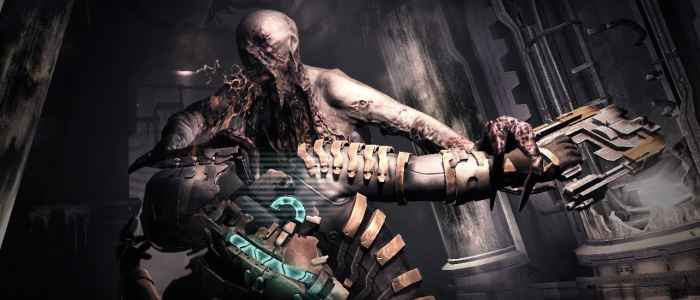
Throughout the trilogy, Isaac must fight to survive, not only against the murderous Necromorphs and Unitologist zealots, but also against his own crumbling sanity. Like Lovecraft’s stories, Dead Space gives the audience a protagonist who is being driven mad by a cosmic abomination. Players experience Isaac’s hallucinations and delusions as if they were their own, an element that adds more to the game’s overall ambiance than its violence and gore.
Destiny Draws Heavily on Lovecraft for World-Building
Many new horror games launched after Dead Space proved successful, but a survival horror title wouldn’t be the next major installment in the Lovecraftian period. Instead, it would come from a company with a history of using eldritch abominations as villains.
When Destiny launched in 2014, gamers were expecting lots of things, but Lovecraft’s brand of horror wasn’t on the list. Still, it wasn’t entirely surprising when two of the villainous races in Destiny – the Vex and the Hive – turned out to have Lovecraftian elements in their lore. Developer Bungie’s former franchise, Halo, featured the Flood: an almost invincible race of parasites controlled by a telepathic hivemind. Most Destiny gameplay bears little resemblance to anything Lovecraft and Derleth wrote, but its raid activities revolve almost entirely around cosmic horrors.
The game’s first raid, the Vault of Glass, is “a place that is a time before or after the stars,” inhabited by the Vex. This race of sentient robots is born in the Black Garden. This location – like the Vault – exists outside of measurable time and space. The Black Garden is the source of an “abominable presence,” which the Vex, who were unable to understand it, began instead to worship and emulate.
The Vault is, in theory, a passage the Vex use to travel through time and space. Its first boss, the Templar, is fittingly described as “a [creature] of impossible capabilities – a creature out of time.” These small hints at Lovecraftian themes make the Destiny companion app’s description of Atheon, the final Vault of Glass boss, even more impressive:
To speak of Atheon is to accept certain limitations. We are ill-equipped to understand an entity that defies simple causality. Let us accept these limitations and proceed.
Atheon waits in the Vault of Glass. Just as Atheon sidesteps ‘past’ and ‘future’, [sic] it is impossible to say whether Atheon created the Vault or the Vault created Atheon. Causal pathways converge on Atheon from every axis in the space-time bulk.
Outside of the Vault and its inhabitants’ unknowable aspects, the Vex lack a distinct Lovecraftian feel. Little is mentioned of the Vault of Glass having the ability to drive mad those who dare to conquer it, and the Black Garden has not – according to current knowledge – corrupted any members of the Light-aligned races in Destiny.
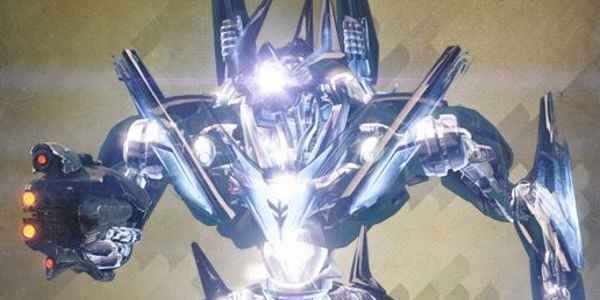
However, the exact opposite is true for Crota’s End: the second Destiny raid. Crota is the Hive’s god-king, who led them to conquer the Moon and then retreated to a parallel realm of his own making. The Hive worship an array of wicked gods, of which Crota is the youngest member. His creator, Oryx, is the ultimate god in the Hive pantheon.
Oryx’s name will be familiar to cosmic horror fans, as it bears a striking similarity to Orryx: one of the Great Old Ones. Orryx is not one of Lovecraft’s original creations, but was instead added to the Cthulhu Mythos by Derleth. He is described as a pillar of white and purple light who blinds those who look at him for too long. Derleth’s Orryx bears little resemblance to the Hive god in Destiny. Oryx is a mystery to the Light-aligned races, and Crota, his creation and servant, is the closest any guardian has come to him.
Destiny players first learn of Crota through Eris Morn, the sole survivor of a fireteam who failed to eliminate him. Her fascination with the Hive gods borders on insanity, but her mental illness is not fueled by survivor’s guilt. All the members of that ill-fated fireteam succumbed to madness in the depths of Crota’s world, even the legendary Toland, who claimed the Darkness itself told him secrets. After losing her comrades, Eris spent years lost and alone in Crota’s dark realm. In that time, she lost an eye to the Hive; as an act of revenge, and partly driven by her obsession with Crota and Oryx, she took three Hive eyes – eyes she now uses and that weep forever – in exchange.
That the world created by Crota’s own power could drive someone to self-mutilation is obviously characteristic of eldritch horror, but Destiny doesn’t stop there. Both the Vex and the Hive willingly participate in ritual sacrifices to their deities. The Hive undergo painful transformation rituals in order to ascend their ranks. These cultic ceremonies ring with Lovecraftian themes, though some of them, admittedly, seem to have come more by way of Clive Barker than from Lovecraft himself.
Bloodborne Takes on the Cthulhu Mythos
Like Destiny, From Software’s Bloodborne keeps its Lovecraftian influence under wraps. Like the developer’s infamous Souls series, Bloodborne takes time to beat and dedication to master. It isn’t until players are halfway in that they begin to discover the game’s ties to the Cthulhu Mythos.
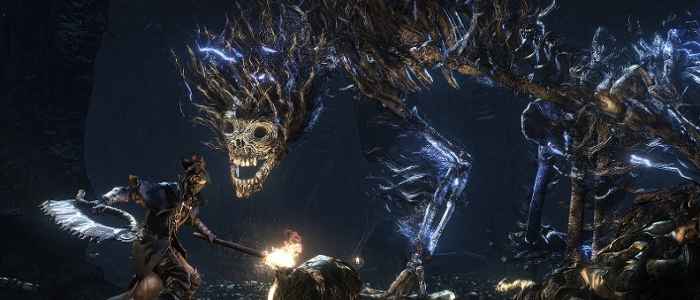
The Great Ones are not-of-this-world deity-like figures in Bloodborne, who have contacted and shaped humanity since its existence. Players are tasked with killing these beings, who are planning to shift creation’s power dynamic entirely. After coming in contact with the first Great One, players begin having what, at first glance, appear to be vivid hallucinations. As they collect Insight, players start to see the dark and weird things present in their world; new creatures, attacks, and events come to light.
The concept of hidden knowledge as dangerous comes up a lot in the Cthulhu stories, but in Bloodborne – as in Destiny – Lovecraftian influences are largely subtle. Die-hard fans will recognize them on sight, in spite of developers’ tendencies toward vagueness, but those less familiar with the Cthulhu cosmology will view these eldritch moments as little more than creative applications of horror in non-horror titles.
Even Indie Games Are in on the Trend
Triple-A, mainstream titles are the focus of this article, but their developers are certainly not the only ones bringing cosmic horror to the video game fold. Indie developers have been making Lovecraft-inspired titles for years, and we would be remiss not to mention some of them here.
Amnesia: The Dark Descent launched on PC in 2010 to become an immediate cult-classic, spawning play-in-the-dark challenges, downloadable content, and a 2013 sequel, Amnesia: A Machine for Pigs. Like Dead Space, this PC title was labeled a survival horror game with little to no analysis of its Lovecraftian elements. Yet the game’s plot makes it feel as if Amnesia is an adaptation of an unpublished Lovecraft story.
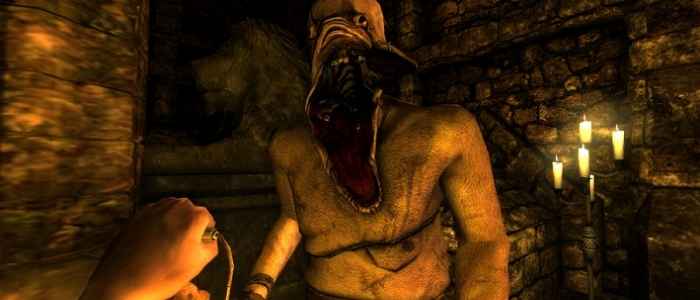
Then there’s Phantasmal: City of Darkness, a procedurally-generated roguelike set in the Kowloon Walled City. Developer Eyemobi isn’t shy about its admiration of Lovecraft, and that the game is inspired by the writer’s twisted works has been a major marketing point. While Dead Space deals heavily with the protagonist’s madness, Phantasmal includes an insanity meter, which fills as the player comes in contact with the game’s monstrous enemies. Taken along with the game’s penchants for tentacles and cryptic runes, this meter cements the eldritch horror feel of Phantasmal.
Lovecraft fans will be quick to tell you about the many recent indie games that are direct adaptations of the author’s work, which include the Call of Cthulhu series, Cthulhu Saves the World, and At the Mountains of Madness, among others. While these games are of obvious importance when discussing the Lovecraftian period, some gamers will agree with me when I say that these titles are too close to the source material to accurately show how weird fiction is influencing game development today.
What do you think? Leave a comment.




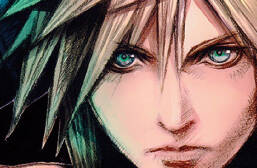






If you enjoy turn-based, tactical RPGs, I suggest to try out Call of Cthulhu: The Wasted Lands. It has a good lovecraftian atmosphere which works it way nice into the gameplay, such as losing sanity, fighting against overwhelming odds, cool monsters and fitting story.
I love Lovecraftian games! Everyone should try Anchorhead. It’s an interactive fiction game. It’s fantastic and disturbing.
I see HPL references everywhere in games nowadays!
Great article! the depth into Destiny is quite interesting, I never thought of the vex and the Hive to have Lovecraftian origins.
The Hive always smacked of Lovecraft to me, especially after The Dark Below dropped. To confirm my suspicions, I checked the Grimoire cards, and – sure enough – both the Hive and the Vex were dripping with cosmic horror.
Wow great read but you did not mention Alone in the Dark (1992)! It was 100% Lovecraftian and, from what I remember, very enjoyable.
I was trying to keep this piece focused on games from the last 10 years or so, but Alone in the Dark did pop up a lot in my research. I wasn’t going to include the newer title – sequel? remake? – because, from all accounts I’ve read, it was pretty terrible.
I think Dead Space is a good example of lovecraftian horror.
I agree. All the shooting and stomping and silly things aside, the animated movies, comics, and overall mythos of the universe is very lovecraftian. The insanity that spreads slowly from the marker, the whispers from some unknown entity that can’t be explained, the deaths that follow and madness that completely takes over. Then soon turning the corpses into twisted abominations you can barely describe, and you’re trapped with them, unaware of what horrible fate befell them. …then DS3 came along and ruined that for me. 1 and 2 are great but 3 was just way too action-y pew pew.
Sadly, DS3’s poor sales numbers may prevent us from getting a fourth game in the near future. EA ruined that game. (Note: if I can manage to play through a horror game, it’s not a horror game.)
Dead Space is more focus on zombies/body horror.
The cosmic horror elements are there, but they’re certainly not that prominent, especially at the beginning. Dead Space 2 has a bit more, but still is pretty light.
I’d go with Eternal Darkness..
Fallout 3, my all time fav game, has a lovecraftian quest where you have to essentially take the necronomicon from the dark swampy DLC area, and take it to the dunwich building to destroy it.
This also popped up in my research. I don’t remember this quest, so I’m definitely going to dust off Fallout 3 and find it. 🙂
Call of Cthulhu: Shadow of the Comet. Play it.
Magicka has a Lovecraftian expansion called “The Stars Are Wrong.”
The video game adaptation of The Thing has a very cool atmosphere it’s worth a try and reminds of this type of cosmic horror.
Amnesia: The Dark Descent. Played 20-30 minutes, shotdown the game, uninstalled it and said “I be damned if I ever play that again” as I entertained the thought of microwaving the harddrive in an attempt to expel the cosmic horrors that now inhabited it.
That’s a legitimate response, yep. I want to buy all these cool horror games and watch my partner play through them. I’m far too skittish to play them myself.
Although I’m not an avid gamer, I found your parallel to Lovecraft interesting, as I love reading about how obscure work has influenced today’s pop culture. Thanks for the interesting read!
Anytime. Glad you enjoyed it. 🙂
I wonder if there are any reasons for the re-emergence of Lovecraftian horror?
Well, there is some evidence to suggest that zombies and post-apocalyptic themes become more profitable during an economic downturn, so I suppose this could have something to do with it?
Great article! Lovecraft is one of my favorite writers, and gaming is my favorite passion. I love how natural Lovecraft’s stories and themes fit into the realm of gaming.
Thank you. If you like Lovecraft, I also suggest Harlan Ellison. He’s a different kind of horror writer.
Thanks! I’ll definitely look into it, I always love discovering new authors.
I seem to remember quake being pretty lovecraftian, I mean the final boss is Shub-Niggurath.
I unfortunately never got to play Quake – it’s a long story – but I want to look into it even more after reading this comment. 🙂
The Silent Hill franchise has some strong Lovecraftian themes. A cursed town full of hideous and bizarre monsters and murderous cultists who worship dark gods.
So wanted the new Silent Hill to happen. The demo was great.
Good analysis. My conjecture would be that past forms of horror are simply no longer adequate. We live in a world which has explored and catalogued the vast majority of touchable existence, creating a barrier between our understandings and the acceptance of things such as vampires or werewolves. But this barrier cannot protect us from unknowable things, or from unstoppable concepts. Madness, the unknown, and our own loss of free will are all embodied in the Cthulu Mythos, and ring true to modern ears.
Great job!
My biggest take away from playing Dead Space was definitely the heavy influence of John Carpenter’s “The Thing”. Which, of course, is a remake of another movie that was based on a separate novella. So it almost seems, in the case of Dead Space at least, that perhaps the influence of Lovecraft, and the Cthulhu Mythos, has become so pervasive in horror culture that many creators may not even be aware that they are utilizing this “cosmic horror” trope. Perhaps “weird fiction” has become the new normal in horror video games.
Very nice article, by the way!
You’re certainly correct, although I believe many creators – at least the ones we’re talking about here – are well-versed in Lovecraftian horror. I think that when we’re talking about science fiction/horror, cosmic horror is almost the only variety out there. I’m thinking here of Event Horizon, which is basically Hellraiser in space.
I’m glad Lovecraft has grown in popularity so much over the last few decades. A great influence on science fiction and horror!
I’m very sad to say I’ve never played any of the games mentioned in this article but I am now more compelled to do so in the future! There are definitely more games out there that could strengthen your argument about a resurgence of Lovecraftian beings/themes, I’d love to see a sequel article featuring them. One person mentioned Silent Hill but I’m surprised nobody has brought up Skyrim. I’m not as versed as you but I think the daedric princes would fit well into this category, especially Sheogorath the prince of madness and Hermaeus Mora the prince of knowledge and memory who manifests in the game as a giant rancid void of tentacles.
Oh yes, the Daedra are heavily influenced by Lovecraft. As others have pointed out, Bethesda’s Fallout franchise has whole missions inspired by the Mythos. In terms of expansion, I’d love to talk more about indie games, like Don’t Starve.
Eternal Darkness: Sanity’s Requiem is my favorite lovecraftian game.
Darkest Dungeon also wears its influence on its sleeve. I think the reason Lovecraftian themes are making a comeback is the fact that, at least in the realm of video games, is the fact that the horrors are pretty indescribable and it gives the artists a lot of wiggle room on if they want to tweak certain things to fit their work.
Lovecraftian themes are always interesting because of their unfathomable nature – in Call of Cthulhu, you can go mad simply from looking at a Cthulhu plushie while in Bloodborne you gain insight of madness by experiencing horrors firsthand.
Great article!
I thought the Lovecraftian themes in Bloodborne were really well done! The game starts out creepy and as things are revealed throughout gameplay everything gets creepier and creepier.
Very intriguing…I wonder if you have taken a look at the works of Brian Lumley? This is in no way to discredit what you have done here but it shows a more modern influence of Lovecraft on literature and therefore may also be a bridge to the digital/gaming world.
It was a very well connected article
I am familiar with Lumley’s name, but not his work. I do, obviously, believe that literature and film have a connection to video game storytelling, and it’s certainly possible that the creators of the titles mentioned here discovered Lovecraftian horror through Lumley instead of Derleth. 🙂
Great article! I quite enjoyed the Lovecraftian themes Bloodborne had to offer. It’s interesting to see how games take their inspiration from Lovecraft and put their own twist on the madness.
I was honestly quite surprised by the breadth of your history, Kristian. The sort of cosmic/weird horror elements that crop up in Destiny and Dead Space almost totally passed me by, and I think they’re indicative of just how much is owed to Lovecraft in modern fiction.
I was very impressed with Bloodborne’s take, as it seems to be something of an illustration of the evolution of genre, from the Victorian to the Lovecraftian, simultaneously forward and in reverse, preceding and following it. Do you find that the widespread organization of the game’s Lovecraftian elements into religion throughout Bloodborne significantly changes its meaning or impact in the game?
My knowledge of Bloodborne is purely academic. I don’t own a PS4, so I have no way of playing the game for myself. However, I find it interesting that you mention the game’s Victorian setting and influences as distinct from its Lovecraftian ones. Lovecraft the man was an American product of the late Victorian era, and he was an unabashed Anglophile. These two elements combined to give all his work the dark Victorian feel that Bloodborne has captured so well.
It never ceases to amaze me the complex circuitry that connects our culture and different planes of it. I don’t play that many video games, and have only recently started reading him– I was struck by his frequent (at least it felt like it) use of the words “eldritch” and “noisome.”
You have a weird double report in your second paragraph.
I don’t see anything of the sort in the second paragraph.
Loved the article, I hadn’t considered Lovecraftian influences beyond those games which market themselves as horror. In light of this, I might also point you to the Mass Effect series, in which Lovecraftian themes of insanity by proximity, an enemy of inhuman motivations are explored through the story’s impetus, the reapers, (which remain their defining characteristic if you do what I did and ignore the third one.)
Cosmic horror is indeed pervasive; gaming is an efficient medium to explore this sense of awe and powerlessness. I fear this is not fully utilised, and may be systemically impaired, whereby visually creating the horror of a great one is only ever effective where this sense of awe is retained. The idea that the god can be slain, and by given mechanics, lessens the horror experienced.
You are much more frightened of a boss when you don’t know its move set, and its potential danger is much greater. But this only substitutes the sense of awe, with survivalist in game logic. You don’t want to die because of progress loss, whereas a human doesn’t want to die for more obvious reasons. And more egregiously, you are allowed to re-attempt the boss, where all sense of horror is spent. So, I suppose I wanted to ask, do you think its possible to pay full homage to Lovecraft in this interactive medium?
I think you should’ve replaced Dead Space with Eternal Darkness: Sanity’s Requiem. Dead Space is a pretty great game, but I think it takes more inspiration from sci-fi horror movies like The Thing (1982 version), Aliens, and Event Horizon. ED: SR on the other hand is much more in-line with the whole “Elder Gods make normal people go insane” thing.
As a huge fan of Lovecraftian lore, Bloodborne and Amnesia were amazing experiences. Frictional Games’ new game SOMA carries many Lovecraftian elements as well.
Video games are a great medium for cosmic horror and especially Lovecraftian tropes. The player is placed into the body of the protagonist, just like they would in a written story, and are given freedom to explore their surroundings and take in the atmosphere.
Though developers obviously give players objectives, a character to play as and distinct controls, it is the settings, themes, sounds and visual motifs that truly let the developer form a terrifying experience. Video games such as Bloodborne and Darkest Dungeon may not be perfect renditions of Lovecraft’s mythos, but their unparalleled imitation and understanding of the emotion and tropes is key.
It is not the reproduction of Lovecraftian horror that succeeds, it is the reimagining of it.